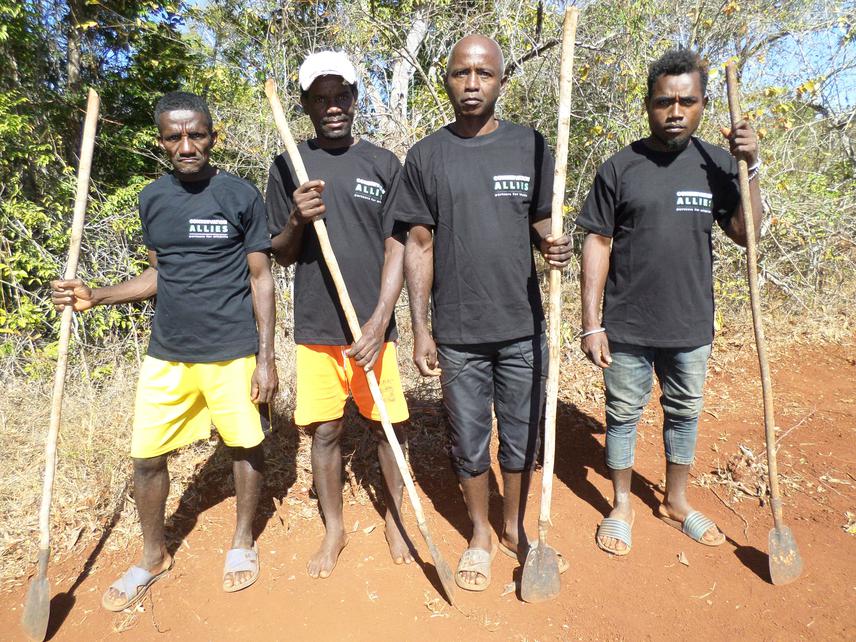Sylviane Volampeno
Other projects
9 Aug 2013
Combining Ecological Research and Local Community Involvement to Achieve Long-Term Conservation of the Critically Endangered Blue-Eyed Black Lemur
27 May 2015
Advancing the Conservation of the Blue-Eyed Black Lemur: Research, Awareness Raising and Development of Alternative Livelihoods
3 May 2018
Conservation of Threatened Lemurs in Andilambologno Forest, Western Madagascar: Biological Research, Habitat Restoration and Community Outreach
The Andilambologno forest which is located in the north-western part of Madagascar possesses high endemic biodiversity including lemurs, birds, reptiles and amphibians. The COVID-19 pandemic has strongly impacted Madagascar. The country was in lockdown for several months, therefore rural communities were unable to travel and to sell their crops. In addition, national parks were closed thus people that rely heavily on tourism have lost their jobs. As a result, forest exploitation and wildlife hunting activities are increasing throughout the country.

Rangers during firebreak.
Our field team have reported illegal extraction of timber and lemur traps within the project site, Andilambologno forest. This project aims to directly reduce increasing pressures on lemur species and their forest habitat by reinforcing forest patrolling, improving the local communities’ living conditions, promoting a better health and raising the local communities’ awareness about the importance of the protection of the endemic biodiversity.
Header: A group of a blue-eyed black lemur.